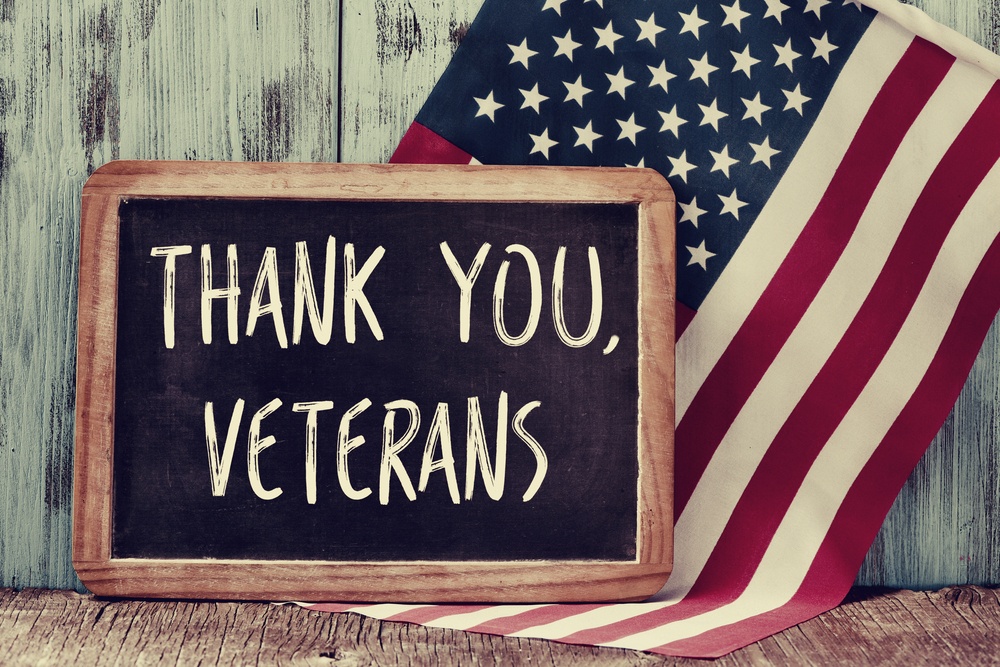
My Thoughts About VA Loans on Veterans’ Day, November 11, 2019
Dear Fellow REALTORS & Home Sellers on Oahu:
Many of you have posted online or emailed today “Happy Veterans’ Day” and lots of nice words about our Veterans. Some of you have served in the military, some of you (like me) are spouses of Veterans, and most everyone else has relatives, friends, or clients who are Veterans. But still I ask, how many of you take the opportunity, when you have one in your real estate practice or transaction, to honor a Veteran?
I’m talking about how you deal with VA buyers and VA loans in real estate. Do you treat buyers with VA loans the same way you treat buyers with conventional loans? If not, perhaps you should. This is one way a seller or seller agent can truly honor a Veteran.
Unfortunately, in my years as an Oahu REALTOR, I’ve seen the exact opposite of preferring or even treating VA loans equally to conventional loans. Often, I’ve seen outright VA loan discrimination. Now, I am not saying that these sellers or sellers agents have anything in particular against Veterans, but they may be making decisions based on outdated information.
VA Loan Discrimination.
Is VA loan discrimination illegal? No, not in Hawaii. While Federal and Hawaii Fair Housing laws prohibit housing discrimination for many reasons (e.g., race, color, religion, ancestry/national origin, sex, familial status, physical or mental disability, marital status, age, HIV infection, sexual orientation, and gender identity), Veterans are not a protected class under these laws. (Note: military status is protected against housing discrimination in a few states.) In Hawaii, sellers and sellers’ realtors are free to discriminate openly and freely against Veterans using VA loans.
For example:
I recently had a situation with Buyers looking to use a VA loan to purchase a home on Oahu. They both have excellent credit scores over 800. They could afford the house, and came in first and strong, with an offer significantly over asking. Terms and conditions on the purchase contract were clean and tight, including short inspection periods and a closing period of only 30 days, where 45 is typical. I included an appraisal clause and they were willing to do repairs prior to close. And the Seller had no other offers!
One of the Seller’s agents stated that they did not want to take a VA loan under any circumstances. They had preconceived notions about VA loans that were simply stuck in their heads, despite modern realities.
Why Some Sellers Discriminate
I believe these agents are both good people and that they truly believed they were protecting their seller by not accepting the offer with a VA loan. However, their belief (as communicated to me) rested upon the following outdated or incorrect presumptions:
- A VA loan was more expensive to the seller.
- The buyers were not as qualified because they had less money down.
- The VA loan would take longer to close.
- (The biggie!) They thought the VA loan would be very difficult to close because of some minor areas of deferred maintenance on the property.
A More Costly Loan? Not Typically.
Back in the day, a seller accepting an offer from a VA buyer would have to absorb the non-allowable costs that the VA would not allow the buyer to pay. Now, many, if not most, VA lenders pay the non-allowables. A VA loan would be no additional cost to the seller. In our case, the contract expressly stated the Lender would be paying the non-allowables.
VA Buyers Less Qualified? Not Typically.
Whether or not a buyer uses a no or low down payment loan (such as VA) has no direct relationship to how qualified a buyer is and whether the loan will go through without problems. A VA buyer may have cash invested in other interest bearing or otherwise profitable ventures. A buyer does not automatically become less qualified because they might wish to leverage their cash for purposes other than having it sit as equity in a house (where it earns zero). Further, VA loans often have very attractive interest rates. Why would a Veteran not take advantage of this benefit?
VA Loans May Even Be Better Loans
In addition, extra money that doesn’t have to be put into the loan to reach 10 or 20% down can be used for other purposes. VA buyers may have extra cash on hand for necessary repairs or remodels. Or they might need cash to put into the deal, if (heaven forbid!) there is an appraisal shortfall. A VA buyer may actually be more financially stable, with greater cash reserves than a conventional buyer.
Not only that, with many VA loan transactions, most if not all of the cash is put into escrow early in the transaction. As a result, there naturally is one fewer thing that can go wrong at the end. In my experience, VA buyers in the military also generally have more stable employment that those in the private sector. Over the years, I’ve had two transactions canceled due to buyers using conventional loans losing their private sector jobs during the escrow period, but have had no VA buyers lose their jobs during escrow. VA loans, especially with active duty service members, seem like safer loans to me, and many lending experts will agree.
VA Loans Take Longer to Close? Not Typically.
As for timing, many VA lenders are now closing these loans in as short as 30-45 days. In my experience, the typical conventional loan closes in 30-60 days. 45 days is the timeframe requested by most of the lenders I work with. Assuming there are not a lot of problems with the appraisal (which can be the case with any type of loan), there is really no difference in time frame between VA and conventional loans.
VA Loans Harder to Close Due To Conditions Concerning the House?
… Not Typically!
And that brings us to the appraisal/condition of the home and the #1 reason some sellers and agents discriminate against VA buyers in Hawaii. As most of you know, Hawaii homes are notorious for having issues. Specifically, these most often involve: (1) unpermitted additions and (2) deferred maintenance of varying degrees. It used to be that these conditions could prevent or hinder a sale to a VA buyer. These issues are much less problematic now.
Unpermitted Areas
Several years ago, the VA relaxed its restrictions on lending on properties with unpermitted areas. Instead of denying the loan, the appraiser would note the non-conformity, and the VA would require a letter from a licensed contractor stating that the un-permitted improvements were built to code. I’ve closed several loans like this over the years. It was not unduly time-consuming or costly to obtain this letter. The VA loans went through without much ado.
Recently, the VA made it even easier to obtain a property with unpermitted areas. A contractor letter is no longer required. Instead, the veteran simply signs a “hold harmless” letter waiving the VA’s responsibility for the unpermitted improvements. The un-permitted areas are given no value, however. This is exactly the same as is done with conventional and other types of loans.
Deferred Maintenance
Conventional and VA loans have very similar standards and requirements of basic habitability. VA appraisers are not supposed to pick apart properties for minor deferred maintenance or cosmetic defects. In fact, the VA guidelines specifically state:
“The appraiser should not recommend repairs of cosmetic items, items involving minor deferred maintenance or normal wear and tear, or items that are inconsequential in relation to the overall condition of the property. While minor repairs should not be recommended, the appraiser should consider these items in the overall condition rating when estimating the market value of the property.” (Emphasis added.)
In other words, minor deferred maintenance should not block getting the loan, but should be taken into consideration when assessing the value. While there is at least one VA appraiser on Oahu (out of dozens) considered to be “over the top” regarding deferred maintenance, most VA appraisers are fairly reasonable. And if there is a condition identified as problematic, the item may be fixed prior to close. Many VA buyers are even willing to do the repairs at their own cost!
All Loans Have Their Issues
In my experience with VA loans (with many VA loans on both sides of the deal), VA appraisers have only twice that I can recall called out the property for repairs prior to close (knock on termite-eaten wood!). Though, at least twice as many appraisers have done so with both conventional and FHA loans I have worked with. What is the problem with VA loans then, sellers!?! These same exact issues can and do arise with conventional and FHA loans. We, as realtors, just work the issues out and help close the transaction!
Let’s Honor, Not Penalize, Our Veterans
So I humbly ask on this Veteran’s Day, to seller’s agents and sellers: Give our Veterans a chance to purchase a home. VA loans are not typically any harder to close than conventional loans, with knowledgeable people working to close the transaction. And VA buyers are certainly not less qualified. Don’t take my word for it, ask your favorite lender and/or appraiser. Please inform yourselves and your clients, and help end VA loan discrimination. This is one sure way to show real gratitude to our Veterans for their service. Many thanks!
Sincerely,
Yvonne Ahearn RB-20262
Connect With Yvonne Jaramillo Ahearn, Esq. (B)
| TESTIMONIALS | BLOG | INSTAGRAM | FACEBOOK | LINKED IN | TWITTER | VLOG |
![]()


Leave your opinion here. Please be nice. Your Email address will be kept private, this form is secure and we never spam you.